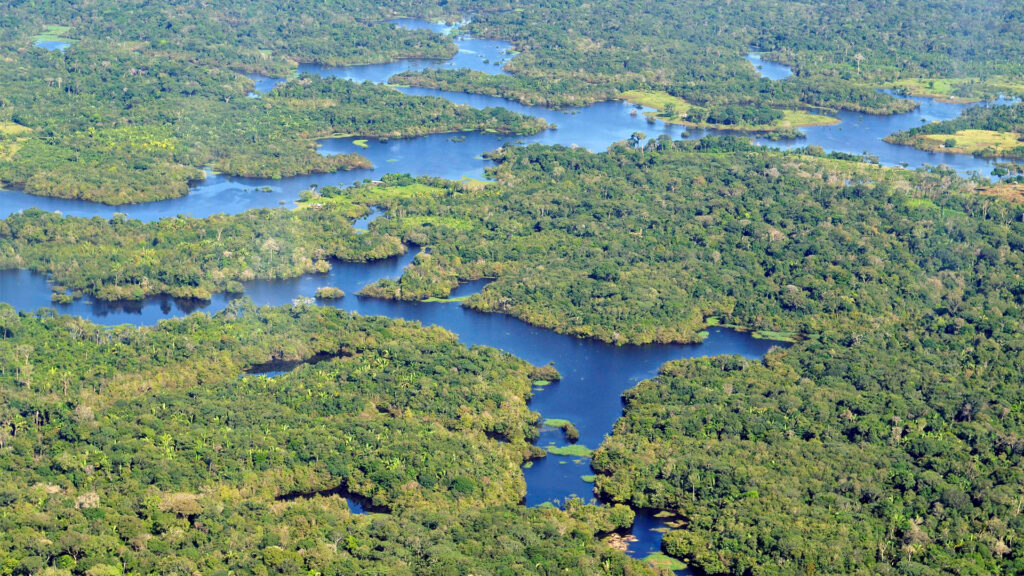By Carlos Roa, VoLo Foundation
Alex Rafalowicz is the director of the Fossil Fuel Non-Proliferation Treaty Initiative, a global proposal “to phase out fossil fuels and promote a just transition,” according to its website.
Alex recently traveled to Cali, Colombia, to speak at the United Nations’ Sixteenth Conference of the Parties on Biodiversity 2024, or COP16, which runs from Oct. 21 to Nov. 1. We interviewed him to hear his comments on the summit and the message he is delivering there.
“At this summit, governments from all over the world are negotiating their goals for the protection of nature and biodiversity,” he explains. He continues: “We, as a network of citizens, organizations, indigenous nations, trade unions, people of faith, scientists and mayors, are calling for a fossil fuel non-proliferation treaty.”
He adds that they attended to say that fossil fuels – coal, oil and gas – are a major threat to nature and to life around the world.
“This is because these three products are the main source of CO₂ in the atmosphere, which causes climate change. In fact, 86% of the increase of this gas in the atmosphere comes from burning these fossil fuels, which is accelerating the impacts of climate change,” he said. “Sadly, these effects are visible in phenomena such as faster and more intense hurricanes, changing rainfall systems, flooding and rising sea levels.”
By his participation, Rafalowicz wishes to emphasize that the protection of nature must also include policies that stop the expansion of the coal, oil and gas industries. The following is more of our interview.
Who is attending this summit?

“This is a global summit, with a strong presence of indigenous nations, who are stressing that the Amazon is reaching a point of no return and urgent actions are needed to protect it. There are also scientists, people of faith – such as the Catholic movement for climate action – and environmental NGOs, who are working to expose the connections between human activities and the risks to nature. In addition, the Colombian government has invited private sector representatives to discuss investments in a more sustainable economy, based on nature rather than fossil fuel extraction.”
What do you expect to be achieved at the end of this summit?
“It is always difficult to reach agreements between countries, but when we do, we make progress as humanity against the threats we face. One example is the Montreal agreement (during a previous summit) on chlorofluorocarbon chemicals, or CFCs, which has helped reduce damage to the ozone layer. We have also curbed the proliferation of nuclear weapons and the production of landmines through international agreements. What we want to see at this summit is a commitment by countries to implement real plans to protect nature and to recognize the need to stop the expansion of fossil fuel industries, especially in vital areas such as the Amazon.”
You mention peace and its relation to environmental protection.
“Violence and war are connected to the expansion of the fossil fuel industry. There are recent studies that show how fossil fuels are behind many civil conflicts and interstate wars. For example, in Russia’s invasion of Ukraine, control of hydrocarbon resources played an important role. Renewable energies, being more distributed and less dependent on centralized supply chains, offer an opportunity for a more peaceful energy system.”
So, in addition to climate benefits, clean energies could contribute to peace?
“Exactly. Renewable energies are a hope not only for reducing emissions and protecting biodiversity, but also for reducing the violence and conflicts associated with fossil fuels. That’s why we believe that a fossil fuel non-proliferation treaty will not only help the climate, but life in general.”
A final message from you?
“Although environmental problems may seem overwhelming, hope is the most powerful renewable source. As humanity, we have faced great threats before and working together we have come through. Local and community action is key: every small step, such as asking why school buses aren’t electric or why we haven’t signed a fossil fuel non-proliferation treaty, can make a difference.”
Carlos Roa is senior press and PR director for VoLo Foundation. VoLo Foundation is a financial supporter of The Invading Sea. Banner photo: Solar panels and wind turbines (iStock image). This piece was originally published at https://volofoundation.org/news/alex-rafalowicz-from-biodiversity-cop16/.
Sign up for The Invading Sea newsletter by visiting here. If you are interested in submitting an opinion piece to The Invading Sea, email Editor Nathan Crabbe at ncrabbe@fau.edu.



